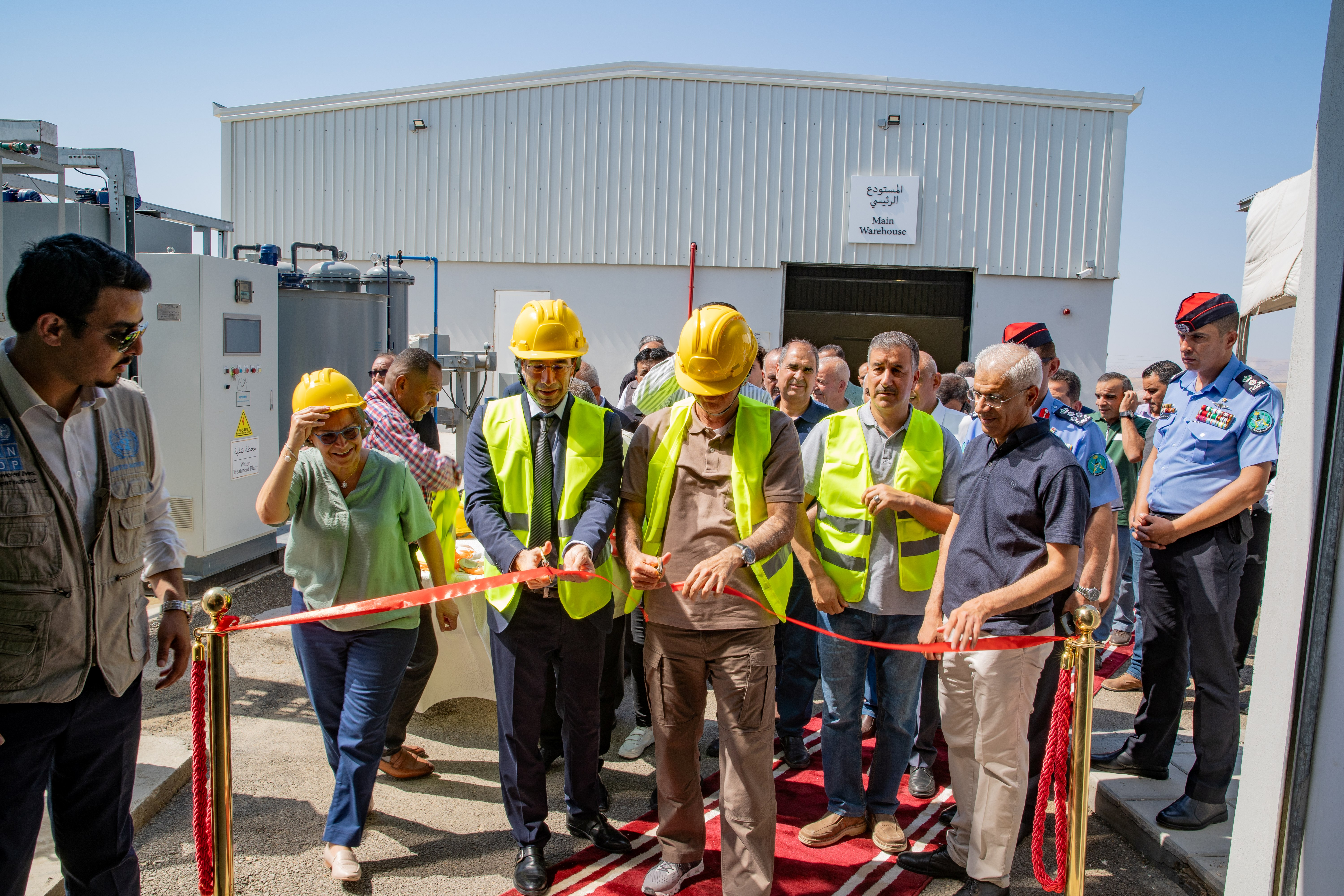UNDP and EU Unveil Agricultural Plastic Recycling Facility in Jordan Valley

Photo Credit: UNDP
A major step toward sustainable development and environmental protection was taken recently in Jordan’s Deir Alla municipality, as a new agricultural plastic recycling facility was officially inaugurated. According to a statement by the United Nations Development Programme (UNDP), the project is funded by the European Union (EU) and implemented in partnership with the local municipality, forming part of a broader initiative to drive circular economy practices in the Jordan Valley.
As reported by the UNDP, the new plant—valued at over USD 1 million—is strategically located in the heart of the Jordan Valley to serve seven municipalities, including Sharhabeel Bin Hasnah, Muath bin Jabal, Swemeh, Southern Shuna, Tabqet Fahel, and Al-M’adi. The facility spans 5,000 square meters and features integrated systems for sorting, cleaning, and processing plastic waste into reusable materials, thereby addressing both environmental degradation and unemployment in the region.
The initiative is part of the “Decentralisation, Accountability and Integrity at the Local Level” (DAILL) Programme, a national effort supported by the EU to enhance local governance and development. According to the official website of the Economic Modernisation Vision (EMV), such green infrastructure projects are considered key pillars of Jordan’s transition toward a low-carbon economy.
During the inauguration ceremony, Jordan’s Minister of Interior, Mazen Al-Farrayeh, emphasized the strategic value of the project. He emphasised that the Deir Alla Agricultural Plastic Recycling Plant marks a significant step toward building a sustainable and profitable model for plastic waste management in the Jordan Valley. The minister also acknowledged the role of municipalities in promoting public awareness around waste sorting and improving delivery systems for recyclable materials.
UNDP Resident Representative Randa Aboul-Hosn described the plant as a “model example” of aligning local governance with strategic investment. “Our goal is to empower municipalities to become enablers of investment and sustainable development—not just service providers,” she noted.
The recycling plant includes a 1,400-square-meter built area equipped with an operations hangar, a canopy zone for materials handling, and designated storage for raw and processed plastics. It is expected to create over 50 green jobs and offer indirect economic benefits to local agricultural communities.
In addition to its environmental objectives, the plant also paves the way for future public-private partnerships. According to project officials, private investors may eventually operate the facility and scale up recycling operations through procurement and resale of sorted plastic materials. Local farmers are expected to be key beneficiaries, as the plant provides a formal mechanism to dispose of agricultural plastic waste, which has long been a pollution source in the area.
The Deir Alla Municipality provided the land for the project, while local community-based organizations (CBOs)—with significant involvement from women—have been instrumental in raising awareness and promoting sustainable waste practices. According to UNDP, women's involvement is critical for fostering inclusive and community-driven environmental solutions.
Following the launch, officials toured the facility to observe its full operational process, from waste collection and sorting to the transformation of plastics into commercially viable raw materials.
Source: UNDP Arab States






